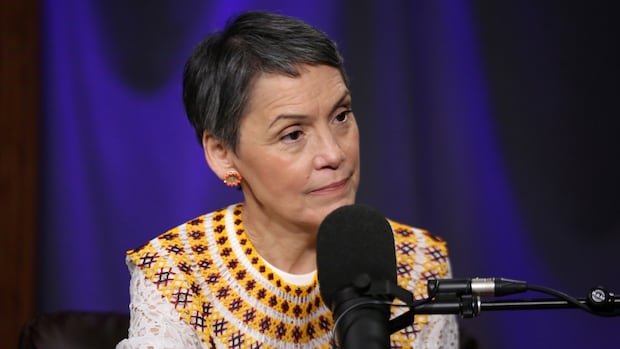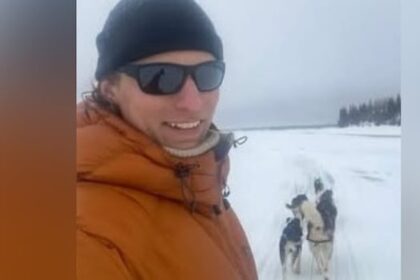Arts·Q with Tom PowerThe Canadian singer-songwriter joins Q’s Tom Power to discuss her new memoir, Kihiani, in which she opens up about her journey in music, as well as the emotional scars she’s been living with since childhood.The Canadian singer-songwriter joins Q’s Tom Power to discuss her new memoir, KihianiCBC Arts · Posted: Sep 10, 2025 3:52 PM EDT | Last Updated: September 10Susan Aglukark in the Q studio in Toronto. (Vivian Rashotte/CBC)Susan Aglukark was “truly afraid” to open wounds with her musicIn 1992, after releasing her debut album, Arctic Rose, Canadian singer-songwriter Susan Aglukark found herself up against a serious internal conflict. While she was incredibly proud of what she had accomplished, she didn’t feel right celebrating it.Mining some of her most painful experiences for inspiration, Aglukark wrote about deeply personal, traumatic memories she had repressed for many years, including the death of two cousins and a friend by suicide, and a horrific sexual assault she endured as a child.When she started touring the album in Inuit communities across the North, she realized she wasn’t alone in her experiences. Many people related to her music — and that terrified her.”I think that was the first time that I was truly afraid of what I had started,” Aglukark tells Q’s Tom Power in an interview. “I feel like what I was doing was opening up wounds, and they’re cutting deeper and nobody’s there to help them. And that scared me because I know what that’s like to not have that support.”Today, Aglukark has the distinction of being the first Inuk artist to have a top 10 hit in this country. She’s won four Juno Awards, a Governor General’s lifetime achievement award and she’s an Officer of the Order of Canada. In her powerful new book, Kihiani: A Memoir of Healing, she opens up about her traumas and triumphs, as well as her experience being an Inuk artist navigating the Canadian music industry.When Aglukark moved to Ottawa from her home in the Kivalliq region of Nunavut in 1989, she remembers feeling ilirasungniq — an Inuktitut term that describes a feeling of intimidated, powerless or “in a state of emotional fear,” as she puts it.”There was always a piece of me that was a little bit ilirasungniq,” she says. “Always in this state, going into these writing sessions and all this stuff…. You’re introduced to this whole other world: the recording studio, musicians and producers, and this incredible, incredible place. And who am I here? I’d yet to discover self. And then you’re introduced to this whole other world, and now I have to figure this out. But I want to. It feels so good.”In Nunavut, Aglukark didn’t have the support she needed to heal from her traumas, so poetry and music became outlets to channel her pain. When she landed an opportunity to move to Ontario and her career started taking off, she felt a responsibility to share her art in a way that wouldn’t re-open wounds.”I think this is the complexity we don’t talk enough about in the Indigenous community,” she says. “We’re going to go through both: re-triggering while healing. And that’s what was happening in the writing of Arctic Rose…. The wounds had always been there, but in the process of writing them was this movement in the body. It’s like, ‘Oh, I can feel through these things and come out at the other end a little bit better.'”The full interview with Susan Aglukark is available on our podcast, Q with Tom Power. Listen and follow wherever you get your podcasts.Interview with Susan Aglukark produced by Ben Edwards.
Thursday, 5 Feb 2026
Canada – The Illusion
Search
Have an existing account?
Sign In
© 2022 Foxiz News Network. Ruby Design Company. All Rights Reserved.
You May also Like
- More News:
- history
- Standing Bear Network
- John Gonzalez
- ᐊᔭᐦᑊ ayahp — It happened
- Creation
- Beneath the Water
- Olympic gold medal
- Jim Thorpe
- type O blood
- the bringer of life
- Raven
- Wás’agi
- NoiseCat
- 'Sugarcane'
- The rivers still sing
- ᑲᓂᐸᐏᐟ ᒪᐢᑿ
- ᐅᑳᐤ okâw — We remember
- ᐊᓂᓈᐯᐃᐧᐣ aninâpêwin — Truth
- This is what it means to be human.
- Nokoma











